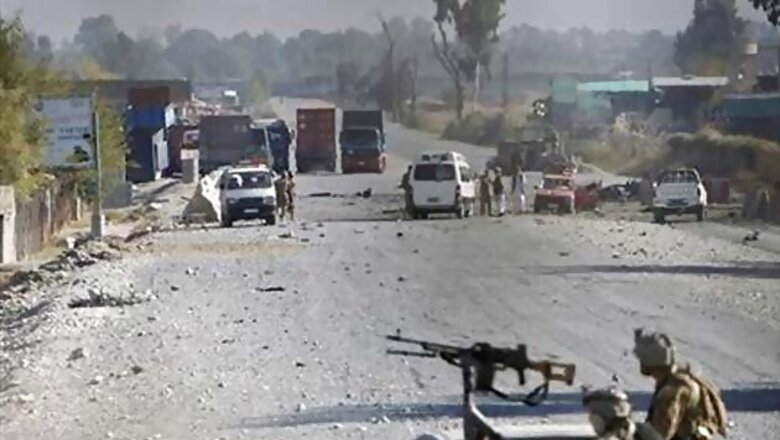
views
Quetta, Pakistan: A suicide bomber driving a vehicle packed with explosives rammed into a bus carrying Shiite Muslim pilgrims in southwest Pakistan on December 30, killing 19 people, a government official and eyewitnesses said. Earlier on Dec 30, 21 tribal policemen believed to have been kidnapped by the Taliban were found shot dead in Pakistan's troubled northwest tribal region, government officials said.
Pakistan has experienced a spike in killings over the last year by radical Sunni Muslims targeting Shiites who they consider heretics. The violence has been especially pronounced in Baluchistan province, where the latest attack occurred. In addition to the 19 people killed in the bombing in Baluchistan's Mastung district, 25 others were wounded, many of them critically, said Tufail Ahmed, a local political official. The blast completely destroyed the bus that was hit and damaged a second bus carrying Shiites that was close by.
An eyewitness who was traveling in the second bus told Pakistan's Geo TV that first bus contained over 40 pilgrims headed to neighboring Iran, a majority Shiite country that is a popular religious tourism destination. A second eyewitness said the bomber rushed by in a pick-up truck, swerved in front of the first bus and slammed on the brakes. The bus slammed into the pick-up truck and then a big explosion occurred. Neither of the eyewitnesses provided their names while being interviewed on TV.
Shiites make up around 15 per cent of Pakistan's 190 million people. They are scattered around the country, but the province of Baluchistan has the largest community, mainly made up of ethnic Hazaras, easily identified by their facial features which resemble those of Central Asians.
Sunni extremists have long carried out attacks against Shiites in Pakistan. But the sectarian campaign has stepped up in recent years, fueled mainly by the radical group Laskar-e-Jangvhi, aligned to Pakistani Taliban militants headquartered in the tribal region. More than 300 Shiites have been killed in Pakistan this year, according to Human Rights Watch.
The violence has pushed Baluchistan in particular deeper into chaos. The province was already facing an armed insurgency by ethnic Baluch separatists who frequently attack security forces and government facilities. But the secessionist violence has been overtaken by increasingly bold attacks against Shiites.
The sectarian bloodletting adds another layer to the turmoil in Pakistan, where the government is fighting an insurgency by the Pakistani Taliban and where many fear Sunni hardliners are gaining strength. Shiites and rights group say the government does little to protect Shiites and that militants are emboldened because they are believed to have links to Pakistan's intelligence agencies.
The 21 tribal policemen who were shot dead were found by officials shortly after midnight on December 30 in the Jabai area of Frontier Region Peshawar after being notified by one policeman who escaped, said Naveed Akbar Khan, a top political official in the area. Another policeman was found seriously wounded, said Khan. The 23 policemen went missing before dawn on December 27 when militants armed with rocket-propelled grenades and automatic weapons attacked two posts in Frontier Region Peshawar. Two policemen were also killed in the attacks.
Militants lined the policemen up on a cricket pitch late on December 29 night and gunned them down, said another local official who spoke on condition of anonymity because he was not authorized to talk to the media. Also on December 30, two Pakistani army soldiers were killed by a roadside bomb in the North Waziristan tribal area, the main sanctuary for Taliban and al-Qaida militants in the country, security officials said, speaking on condition of anonymity in line with official policy.




















Comments
0 comment